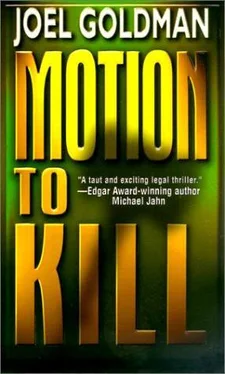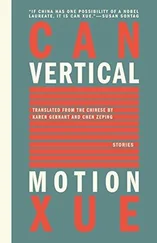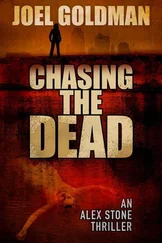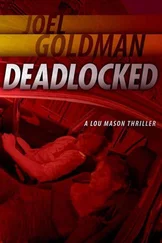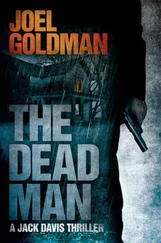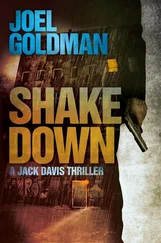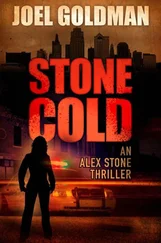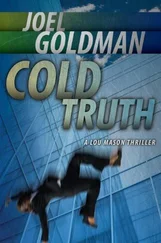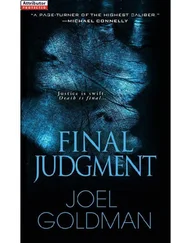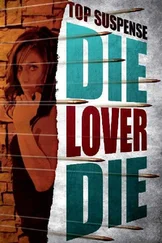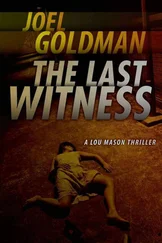Joel Goldman - Motion to Kill
Здесь есть возможность читать онлайн «Joel Goldman - Motion to Kill» весь текст электронной книги совершенно бесплатно (целиком полную версию без сокращений). В некоторых случаях можно слушать аудио, скачать через торрент в формате fb2 и присутствует краткое содержание. Жанр: Триллер, на английском языке. Описание произведения, (предисловие) а так же отзывы посетителей доступны на портале библиотеки ЛибКат.
- Название:Motion to Kill
- Автор:
- Жанр:
- Год:неизвестен
- ISBN:нет данных
- Рейтинг книги:4 / 5. Голосов: 1
-
Избранное:Добавить в избранное
- Отзывы:
-
Ваша оценка:
- 80
- 1
- 2
- 3
- 4
- 5
Motion to Kill: краткое содержание, описание и аннотация
Предлагаем к чтению аннотацию, описание, краткое содержание или предисловие (зависит от того, что написал сам автор книги «Motion to Kill»). Если вы не нашли необходимую информацию о книге — напишите в комментариях, мы постараемся отыскать её.
Motion to Kill — читать онлайн бесплатно полную книгу (весь текст) целиком
Ниже представлен текст книги, разбитый по страницам. Система сохранения места последней прочитанной страницы, позволяет с удобством читать онлайн бесплатно книгу «Motion to Kill», без необходимости каждый раз заново искать на чём Вы остановились. Поставьте закладку, и сможете в любой момент перейти на страницу, на которой закончили чтение.
Интервал:
Закладка:
Mason ripped the receiver from the phone and fifteen minutes later slammed open St. John’s office door with Sandra and St. John’s secretary on his heels.
“You really are a piece of work, St. John. Did you think we wouldn’t check for bugs just because you said there weren’t any?”
He jammed the mouthpiece under St. John’s nose. Two deputy marshals ran into the office, weapons drawn.
“Sorry, Mr. St. John, but your secretary pushed the panic button,” one of the deputies said.
“They didn’t have an appointment, Mr. St. John. They wouldn’t even let me buzz you first,” his secretary said.
“It’s quite all right, Paula. You did the right thing. Deputies, I’m sorry to trouble you. Mr. Mason and Miss Connelly will be leaving shortly, either with or without your assistance. It makes no difference to me.”
Mason pretended not to notice the guards as they advanced toward them.
“All I want is some answers, Frank. Why are you bugging our offices?”
St. John took the receiver from Mason, studied it, and handed it back to him.
“Mr. Mason, I’m afraid you may have more problems than either of us thought. Even those of us on the public tit can afford better equipment than this. It’s not one of ours. Good day, Counselors.”
CHAPTER TWENTY-TWO
Wilson Bluestone’s friends called him “Blues,” a name he’d earned playing piano in jazz clubs around Kansas City after he quit his day job as a cop. He and Mason became friends when Mason quit taking piano lessons from him at the Conservatory of Music.
Mason signed up for lessons a couple of years after he’d graduated from law school, and Blues was assigned as his teacher. At his first lesson, Mason told him that if he could play like Oscar Peterson, he’d think he’d died and gone to heaven. After four lessons, Blues told him to go home, listen to the metronome, and find another route to the pearly gates.
When Mason didn’t show up for his next lesson, Blues called demanding an explanation. Mason told him he got the metronome message and Blues reminded him that he had paid for the first five lessons and that he ought to get his money’s worth.
“Why are you giving up?” he asked when Mason walked into the studio.
It was a small, spare room furnished with an upright piano and a gray metal folding chair. Blues straddled the chair, his arms folded over the back. Mason took the bench, his back to the piano.
“Like I told you over the phone. I got your message. I wasn’t born to be a genius jazz pianist.”
“Why did you sign up in the first place?”
“I love jazz and I think the piano is God’s gift to music.”
“Yeah, but why did you think you could learn to play?”
Mason hadn’t expected this question. “I just assumed anyone who wanted to play could learn to play.”
“What do you like about the music?”
“The way it sounds, I guess. What do you want me to say? Is this some kind of exit interview for failing students?”
“That’s why you’ll never learn to play. It’s not what you hear. It’s how the music makes you feel. If it doesn’t change the way you see the world, you’re just in the audience. And the audience doesn’t play.”
“I guess you’re right. I thought learning to play music was like learning a foreign language. First you learn the alphabet, then the grammar, and then you practice speaking. Keep after it, and you’ve got it mastered.”
“I’ll bet you don’t speak any foreign languages either.”
He was right, but Mason wouldn’t admit it. “Is that all I get for my last lesson?”
“It’s more than you got out of the first four.”
“So is this all you do? Take people’s money to tell them why they shouldn’t take lessons from you?”
“Nope. I’m sort of a freelance problem solver.”
“What kind of problems?”
“Some like yours. Help people realize that they’re better off listening to music than trying to play it. I’m a private investigator. I find people who don’t want to be found and I find out things that people want to know. All depends on what needs to be done.”
He stood up and Mason realized that was the first time he’d seen Blues out of the folding chair. Watching that single movement, Mason began to get an idea of the other kinds of problems he could solve.
Blues was a solid six-three, probably went two-twenty. All of it sleek muscle. But he moved with such ease that it was clear he had power that didn’t depend on size and strength. He had straight black hair and a complexion somewhere between tan and copper. His face was chiseled, with a square chin and dark eyes. The truth was, Mason hadn’t paid much attention to who he was or what he looked like until that moment. And he couldn’t figure who or what Blues was. The one thing Mason was certain of: Blues didn’t belong to his synagogue.
“Mind if I ask you a question?”
“I’m half Cherokee, half Shawnee. That’s what you wanted to know, isn’t it? You’d do better not to stare.”
“An Indian jazz piano player?”
Mason had said it without thinking, almost choking on the question.
“Used to be. Now I’m a Native American jazz piano player. Political correctness ain’t strictly a black thing, you know. And if you’ve got more fool questions, don’t ask them.”
Mason took his advice and didn’t ask any until six months later, when he needed help tracking down a drunk driver who had run over a client in an intersection and fled the scene of the accident. He hired Blues to find the driver.
A week later, Blues called and said he’d found the driver and asked Mason to meet him at Seventh and Pennsylvania on the northwest corner of the downtown. Mason knew the location. It was called the Lookout because it was on top of a bluff that overlooked the Missouri River as it wound down from the north before turning to the east and heading to its meeting with the Mississippi River in St. Louis.
It was the first week of October, and an early cold snap had sucked the last remnants of summer from the air, leaving behind a sharp, crisp sky overhead and small clouds of exhaust from the thousands of cars that flew past on the highways that wrapped around the base of the bluff. Mason parked his car and met Blues at the edge of the Lookout.
CHAPTER TWENTY-THREE
“Hey, good to see you,” Mason said, his hand outstretched. It was a friendly gesture. Appropriate for greeting someone he hadn’t seen in six months and who had agreed to help him out without even negotiating a fee in advance.
Blues ignored his hand, his gaze locked on the distance.
“What are you going to do to him?” Blues asked.
“Who? The guy who hit my client? I’m going to sue the son of a bitch.”
“What do you know about him?”
“Nothing. That’s why I wanted you to find him. I need to find out who his insurance company is so I can put them on notice.”
Blues swept his hand across the view. “What do you see out there?”
Mason started to make a smart-ass remark, like “Not the guy you were supposed to find for me,” when he remembered his last piano lesson. There was a message here and he wasn’t getting it.
“I don’t know. You tell me.”
“Over there,” Blues said, pointing to the west. “That’s the Kansas River. The Indians called it the Kaw, and that spot, where it pours into the Missouri-right where the Missouri bends to the east-they called that Kawsmouth. Not very original. But it makes the point. Down there, where I-70 cuts across the downtown, that was all bluffs-just like this. Right down to the banks of the Missouri. Back in the 1870s, they dug out those bluffs to make the streets. At first they just cut the streets out of the bluffs, like gullies. They even called it Gullytown for a while, instead of Kansas City. To the west, over there, in those old warehouses that are used for haunted houses at Halloween-that’s the West Bottoms. More hogs and cattle were slaughtered there than you could ever imagine. Ten thousand people worked there when the meatpacking business was booming. Lot of people got rich. Not one of them an Indian.”
Читать дальшеИнтервал:
Закладка:
Похожие книги на «Motion to Kill»
Представляем Вашему вниманию похожие книги на «Motion to Kill» списком для выбора. Мы отобрали схожую по названию и смыслу литературу в надежде предоставить читателям больше вариантов отыскать новые, интересные, ещё непрочитанные произведения.
Обсуждение, отзывы о книге «Motion to Kill» и просто собственные мнения читателей. Оставьте ваши комментарии, напишите, что Вы думаете о произведении, его смысле или главных героях. Укажите что конкретно понравилось, а что нет, и почему Вы так считаете.
